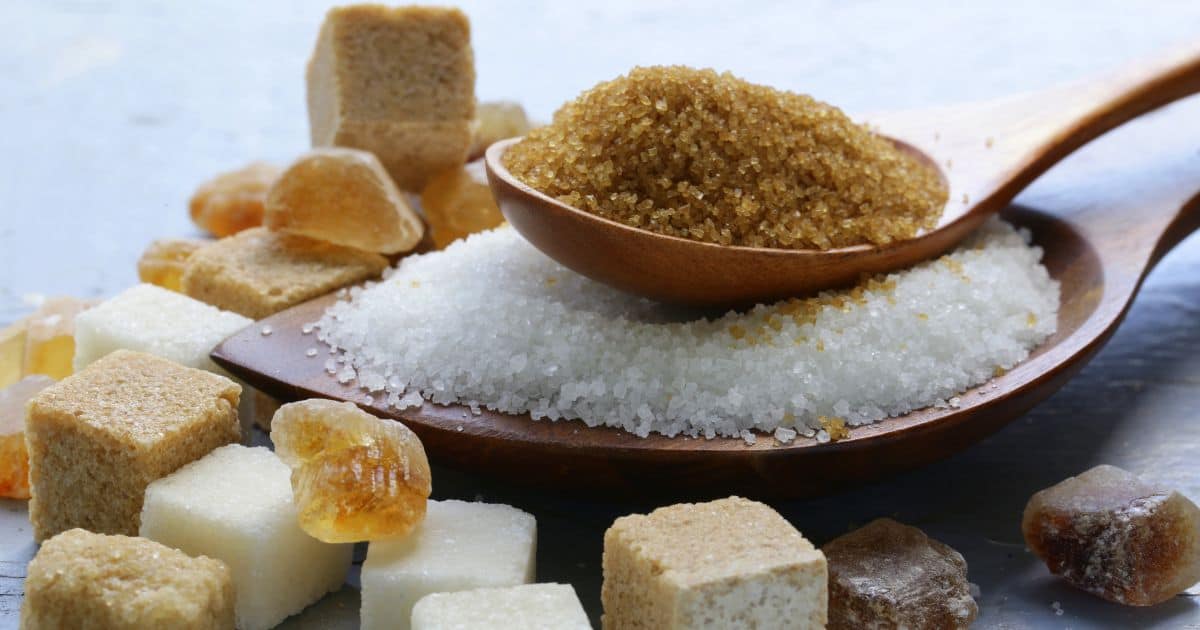What is the Functional Medicine view of cholesterol?
It’s time we bust some medical myths. The functional medicine view of cholesterol is that cholesterol plays vital roles in our body, from synthesizing hormones to maintaining cell structure.
For many decades now, we have been told that high dietary cholesterol leads to heart disease. This is a frightening notion for many Americans who struggle to maintain their cholesterol numbers. But is dietary cholesterol so damaging to our health? Or has our entire society been duped into believing in a flawed science?
Research from the 1950s and ’60s has led us to believe that the cholesterol we consume will adhere to the lining of our arteries and make it difficult for our heart to pump blood throughout our bodies.
This mindset caused many to reduce their consumption of eggs, meats, and other high-fat dairy foods out of fear that it would eventually raise their cholesterol so high that a heart attack would be imminent.
It also resulted in the creation of an entire industry dedicated to low-fat and fat-free food products designed to help Americans reduce their cholesterol levels. When even these dietary restrictions weren’t enough, the pharmaceutical giants created popular “statin” drugs to help lower cholesterol with the ease of simply popping a pill.
This practice has become so common that as of May 2023, more than 40 million Americans take statins, making them the most prescribed medication in the country. 1 in 4 Americans over the age of 45 takes statins to reduce their cholesterol according to Harvard.
What Is Cholesterol?
Cholesterol is an essential molecule or raw material for the healthy functioning of your body. Virtually every cell in the human body can make cholesterol, especially your liver and your brain cells establishing connections.
Understanding HDL versus LDL cholesterol

Cholesterol is a fatty, waxy substance in your body and certain foods. Cholesterol is a key component of cell membranes, the barrier to every cell – moving toxins out and nutrients into your cell. Important wouldn’t you say?
It’s a sterol lipid that sits between phospholipids to help stabilize the membrane. Cholesterol also regulates membrane fluidity in response to temperature changes. Cholesterol is transported in the blood to carrier proteins called lipoproteins.
This is where the biomarkers LDL and HDL come from.
Low-density lipoprotein (LDL)
LDL is low-density lipoprotein and HDL is high-density lipoprotein. HDL, or high-density lipoprotein, is sometimes referred to as “good” cholesterol because it helps lower the risk for health issues by carrying cholesterol away from the arteries and back to the liver to be recycled.
Most people don’t understand what healthcare professionals mean when they refer to “good” (HDL) and “bad” (LDL) cholesterol, which is valuable if we want to get cholesterol under control. It’s a vital cell wall component and helps your brain and nerves function properly.
The conversation about HDL vs. LDL isn’t really about cholesterol at all; rather, these are terms to describe the specific protein particles that cholesterol molecules cling to to travel through the bloodstream.
High-density lipoprotein (HDL)
High-density lipoprotein cholesterol (HDL) has been characterized as good cholesterol because it has the potential to prevent heart disease. The HDL works to move cholesterol away from the arteries and back to the liver to be recycled.
LDL has been coined the bad cholesterol because some LDL particles have the capability of getting oxidized and causing damage in our arteries, which leads to inflammation and plaque.
We say “some” because not all LDL has the potential to work its way into our arterial walls.
Pattern A versus Pattern B lipoproteins
LDL comes in all different sizes and larger LDL particles are not dangerous to our health. It’s only the small LDL particles (pattern B) that can wiggle their way into the lining of the arteries and create the potential for inflammation. It’s important to note that these small LDL particles become damaged and start to create trouble as a result of sugar in the blood and stress.
With that said, if someone is told they have high cholesterol, it does not necessarily mean they are destined for heart disease. If you have damage and inflammation caused by sugar and stress, it doesn’t matter that your LDL is low. Heart disease is still a major risk when you have a lot of small LDL particles (pattern B).
There are a plethora of further tests that can be done to determine a person’s risk for heart disease rather than simply looking at total cholesterol, particularly by analyzing the particle size of the LDL in the bloodstream to determine pattern A vs. Pattern B.
Because triglycerides often rise in association with small LDL particles, the triglyceride/HDL ratio can also be used as a much better predictor of risk. This number should be less than 2 or it could indicate as much as a 16 times increase in the risk for cardiovascular disease.
Insulin and cholesterol levels

Fasting insulin levels also reveal insulin resistance (a significant risk factor) long before diabetes is diagnosed.
Saturated fats which have been maligned in medical circles can reduce these small dense particles of LDL. Saturated fats play a critical role in your lipid community and therefore your health. The opposite of small dense LDL is large, fluffy LDL particles, which are helpful to your health. Unfortunately, LDL-lowering drugs lower the good LDL particles with the bad LDL particles.
Through functional medicine, we seek to support and restore your body’s natural processes, promoting overall well-being and vitality. Our expertise in functional health solutions can guide you toward a healthier, happier life. Take the first step today by contacting us for a consultation or joining our coaching program!
Cholesterol and Your Hormones
Cholesterol is critical for bile acids, Vitamin D, and steroid hormones, including sex hormones. Bile emulsifies fats and is a critical player in your cholesterol biosynthesis.
When you consider your sex hormones: progesterone, estrogen, testosterone, and your stress hormones cortisol and DHEA, you should think about cholesterol because your hormones depend on it. Cholesterol is the precursor to produce steroid hormones.
So trying to reduce cholesterol levels with cholesterol-lowering drugs that have known side effects is misguided at the minimum when you are not looking at the entire functional picture of your health. And don’t forget the impact that minerals play on your heart health too.
Dr. George Mann, Vanderbilt University, who participated in the Framingham Heart Study“Cholesterol-as-an-indicator-of -heart disease
is the greatest scam ever perpetrated on the American public. “
What else is going on?
Lifestyle factors such as stress, food intake, movement, social connection, and genetics. Giving out meds for a high cholesterol reading, without considering all the lifestyle factors, makes me think of the archaic actions of doctors in the 19th Century who used to think blood-letting was a good idea!
Cholesterol concerns and the effects on your heart health are where functional medicine shines. We take a holistic 20,000-foot view of your health and the functional health of your body’s systems.
Understanding Cholesterol’s Impact on Cardiovascular Health
It’s not a simple equation to say that high blood cholesterol or low blood cholesterol levels are directly equal to cardiovascular disease, but undoubtedly, a complex relationship exists between the two. Consider varying blood cholesterol levels as a piece in the intricate puzzle of your cardiovascular health.
While having high levels of LDL blood cholesterol could set the stage for heart complications, it’s the chronic inflammation and damage to the artery walls that invite blood cholesterol to stick around and form plaques — a potential prelude to heart attacks and strokes.
Blaming cholesterol as the sole culprit oversimplifies the issue and disregards other crucial factors that can contribute to heart disease. By approaching heart health holistically, we can address not just cholesterol levels but also inflammation, oxidative stress, and overall lifestyle habits to support a healthy cardiovascular system.
Blaming the blood cholesterol levels as the sole culprit oversimplifies the issue and disregards other crucial factors that can contribute to heart disease. By approaching heart health holistically, we can address not just LDL (low-density lipoprotein) blood cholesterol levels but also inflammation, oxidative stress, and overall lifestyle habits to support a healthy cardiovascular system.
What if your cholesterol biomarkers are low, not high?
While managing high cholesterol receives a great deal of attention, the ramifications of low cholesterol levels are often overlooked. Yet, low cholesterol can be as consequential as high cholesterol when it comes to your health. Cholesterol is foundational for producing cell membranes and vital hormones, and when levels dip too low, you may experience hormone imbalances, mood disturbances, and cognitive issues.
Let’s embrace a heart-healthy lifestyle that supports keeping cholesterol levels in check, without fearing this crucial substance that our bodies need to thrive.
Live Life Well!
Join our email list for exclusive offers and the latest news
We agree to never spam you, by submitting you agree to our Terms of Services
What labs to run to check for cholesterol synthesis?

A standard lipid test while a very inexpensive part of an annual health assessment is a tiny part of your cholesterol picture. There are several sub-types of cholesterol to measure when your standard lipid panel only measures 2 of these. But it can be a simple place to start.
The overall amount of cholesterol floating around isn’t the issue. The number of containers ie lipoproteins is the issue e.g. there is HDL2a, HDL2b, etc. The size of these containers matters. Some substructures are more likely to promote plaque buildup in your arterial walls. Lipoprotein distribution forms patterns and these patterns are predictive of cardiometabolic health issues such as insulin resistance, metabolic syndrome, and diabetes.
Our view on this is that high cholesterol on your blood markers is a lab result, not a disease, and should be assessed as such. It is far more important to test for inflammation, blood sugar, and blood insulin levels to determine how you are doing along with a more detailed look at your lipids. Today, the standard we recommend concerning lipid testing is the NMR lipo profile. It tells us what kind of LDL you have.
Also running inflammatory markers such as C-reactive protein and homocysteine make sense along with fasting insulin, and HbA1C along with your standard panels.
If you have issues with your blood sugar levels, inflammatory markers, and insulin levels, you are clearly on the path to chronic conditions involving your heart, brain, and liver.
Functional Medicine lab markers for cholesterol
Work with a functional medicine practitioner who knows what to test for; how to analyze the labs correctly; and help you get on a program to health and vitality.
Healthy lifestyle choices such as incorporating anti-inflammatory foods, engaging in regular physical activity, managing stress, and ensuring adequate sleep can lead to improved cholesterol profiles and enhanced overall vitality.
By addressing high cholesterol levels through a robust, proactive approach to your health, tailored to your unique circumstances, you can prioritize your well-being. Remember, exploring all avenues to safeguard your health is not just wise—it’s imperative.
If statins aren’t the answer from a functional medicine perspective, what is?
The suggestion of cutting out cholesterol-rich foods or dietary cholesterol as an attempt to limit LDL particles from entering our arteries is a frequently touted step, but these foods are nutrient-packed and deserve a place in our diet.
Some of the healthiest foods we can eat are rich in cholesterol. For example, it has been a widely accepted belief for years that consuming egg yolks, which are high in cholesterol, should be limited. However, the newest set of U.S. Dietary Guidelines now recommends egg yolks as a recommended source of protein because the Dietary Guidelines Advisory Committee no longer considers high cholesterol alone to be a nutrient of concern.
Is butter good or bad for cholesterol?
Remember how everyone was told to use margarine rather than butter because it is healthier? That’s not true either. Butter is full of nutritious and wholesome fats, especially when it’s raw, organic butter that comes from grass-fed cows. The saturated fats found in butter have been known to raise HDL, which we know to be good.
Butter was originally thought to be unhealthy because it also raises LDL. But after further investigation, it has been discovered that eating these saturated fats not only raises the level of the large, non-damaging LDL particles, it also causes the small LDL (the ones that could clog your arteries) particles to grow into the safer, larger ones.

Does Lowering Cholesterol Lower Your Heart Disease Risk?
Study after study has shown that lowering the risk for heart disease has very little to do with lowering cholesterol. The real trouble causes are oxidation and inflammation. LDL particles aren’t the problem, but rather where they wind up in the body. They could get attacked by oxidative stress and inflammatory compounds. This is the real problem.
And sugar is the single leading food (is it a food) that ages the human body from the inside out.

Lifestyle factors to lower cholesterol
Keep alcohol to a minimum. We recommend sticking to a couple of drinks per week if you enjoy sharing a glass with friends and family.
Increase your movement. Intense, lengthy strenuous exercise can hurt you rather than help you. We see this with our clients who are in their 40s or early 50s. Suddenly, the intense exercise regime is no longer working for them.
Weight is creeping up, and in all the wrong places, and even their standard medical blood markers are out of range such as blood sugars, liver enzymes, and lipid markers. All of this indicates a need for functional testing and a lifestyle intervention plan designed for your specific needs and bio-individuality.

We recommend moving about 30 minutes per day including stretching, yoga, and some short interval training. Additionally, it would be helpful to add cholesterol levels to the list of blood markers to monitor.
Eating a Mediterranean-style food plan that incorporates nutrient-dense foods, and a variety of healthy fats, including saturated fat and dietary cholesterol, proteins, and low glycemic foods. We like carbohydrates which can get a bad rap, but not the processed, high trans, saturated fat, and sugar kinds! No need to count macronutrients – just a balance between these different foods. Variety is key for your microbiome.
Incorporating foods like steel-cut oats, beans, avocado, fatty fish, and walnuts which are high in fiber and antioxidants can be helpful.
You cannot eat your way to a cholesterol problem. Cholesterol is made from the inside out. Very little comes from food. Your body produces cholesterol but can’t use esterified cholesterol which is what is in eggs. So, the next time a “nutrition expert” advises you to avoid eggs or stick to egg whites, consider the facts about cholesterol levels.
Drinking sufficient clean water can help maintain your cholesterol levels.
By embracing a lifestyle that nurtures your heart from the inside out, including a nutrient-dense diet and appropriate movement, you can maintain a healthy balance of these lipoproteins.
Vitamins to Support Cholesterol Balance
Absorbing fat-soluble vitamins is key to the health of your cholesterol synthesis.
Niacin or Vitamin B3
Elevating your heart health can often be as natural as embracing the earth’s wellness gifts. Welcome to the world of vitamins that play a supportive role in managing cholesterol levels. Think of vitamins as your heart’s allies, each with a significant part to play in the symphony of cardiovascular well-being. Vitamin B3, also known as Niacin, has been noted for its potency in boosting HDL levels, which aids in sweeping away undesired cholesterol.
Vitamin D
The sunshine vitamin, Vitamin D, has also been highlighted for its potential in maintaining cholesterol levels within a healthy range and supporting arterial health.
Vitamin E
Furthermore, the powerful antioxidant properties of Vitamin E help protect your blood vessels from damage, which could otherwise lead to cholesterol-related complications.
As part of a balanced and nutrient-rich diet, these vitamins might just be the guardians your heart has been searching for. Before starting any new supplement regimen, make sure to consult with a heart-health mentor who can guide you through creating a personalized plan that resonates with your unique health needs. It’s a journey of nurturing—not just for your cholesterol levels, but for your overall vitality.
Conclusion
So in deciding whether cholesterol is a friend or foe from a functional medicine perspective, it is clear that we consider cholesterol to be a friend when part of your overall health. It has been misinterpreted for decades by mainstream medicine. Fortunately, there are now many voices both in mainstream medicine and Functional Medicine leading the way for reducing inflammation and stress rather than cholesterol specifically.
If you are looking to optimize your cholesterol, forget the no-fat and low-fat diets. It’s time to start incorporating good, healthy fats, such as the ones encouraged in your program, back into your diet.
Trade out all the processed foods, which are high in saturated fat, refined sugars, and carbs, for organic whole foods. Most importantly, consider what statins are doing to your health. By opting for a more natural approach, you can save yourself from the extensive adverse effects these drugs are known to produce.
February is American Heart Month. We have a special focus at Metabolix Health on anti-inflammatory foods and reducing stress this month to help reduce your risks for chronic illnesses related to heart and brain health.
Schedule a FREE call with a member of our team to discuss your health and learn more about how we can help you restore your health.
Frequently Asked Questions (FAQs)
What can I do to reduce my risk of cardiovascular disease?
Taking charge of your heart health involves a multi-faceted approach: incorporating anti-inflammatory foods into your diet, engaging in regular physical activity, managing stress, and getting ample sleep. Need a roadmap tailored to your unique health profile? Let’s have a conversation.
How exactly does stress impact heart health?
Chronic stress can lead to a host of cardiovascular problems due to increased inflammation and blood pressure, which strain the heart. Discover strategies to cultivate calmness and resilience by joining our wellness community.
Can diet alone help?
Absolutely! The right dietary choices can significantly influence your overall health and this is what counts: functional balance of all your systems. Anti-inflammatory foods and a balance of healthy fats, for example, play a vital role. Craving guidance? A nutrition consultation might be the perfect start.